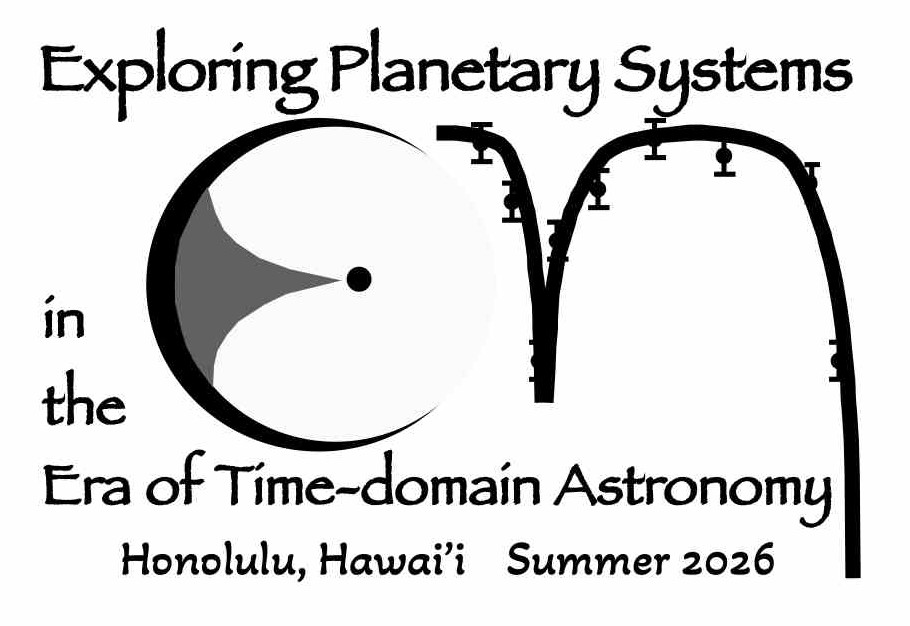Planetary systems and the disks from which they emerge can be highly dynamic environments, with variability and stochastic or episodic events caused by dusty structures in protoplanetary and debris disks, disintegrating planetesimals, exocomets, colliding proto-planets, planetary rings, and evaporating planets. Studies in the time domain can provide insight into both the early and late stages of planetary evolution, complementing the revolutionary advances from transiting planet surveys. As sky surveys advance in sensitivity and duration, they can detect more infrequent, distant, and energetic events. Notable among these are the recently completed Gaia mission, the ongoing TESS mission, the ground-based ASAS-SN and ATLAS surveys, and the upcoming LSST. As surveys improve in precision and baseline, challenges in the discovery, follow-up, characterization, and theoretical modeling of these transient and variable phenomena call for coordinated community effort.
We invite you to apply to join colleagues with shared interests in transient and variable phenomena in protoplanetary/debris disks and planetary systems for a 2-4 week visit to the University of Hawaii at Manoa’s Institute for Astronomy in summer 2026. This program will be timely given the expected advent of Data Preview 2 from LSST, but it will also be a venue for discussion and research on a wide range of topics, including but not limited to:- Identification of anomalies in archival data
- Real time event identification and brokerage
- Analysis tools and discovery frameworks
- Follow-up opportunities with targets of opportunity
- Citizen science
- "Dipper” T Tauri stars
- Exocomets and planetesimal/asteroid collisions
- Occulting disks and rings
- Disk shadows
- Evaporating planets
- Interstellar objects
The program will be lightly structured, with short presentations in the morning and discussion in the afternoon, with much of the day available for self-organized activities. Each participant is expected to give at least one short talk. Groups of co-participants are encouraged to set their own collaborative goals, e.g. analyses of survey data, development of tools, or writing of observing proposals or a white paper.
Applicants should have a PhD or an approved doctoral dissertation topic: we aim to admit a balanced mix of junior and senior researchers. Proposed visits should be between 2 and 4 weeks in duration between June 1 and August 28. Selected applicants will receive a $700 air travel allowance and a $800 per week stipend. There is no fee for participating. To apply, complete this application form. Review of applications will start on November 24. Applications received after that date will be considered on a space-available basis. Inquiries: epseta26@hawaii.edu
Organization: Eric Gaidos, Dan Hey, Peter Sadowski, Ben Shappee, Andy Tzanidakis
Supported by the National Science Foundation's Astronomy & Astrophysics Program.
